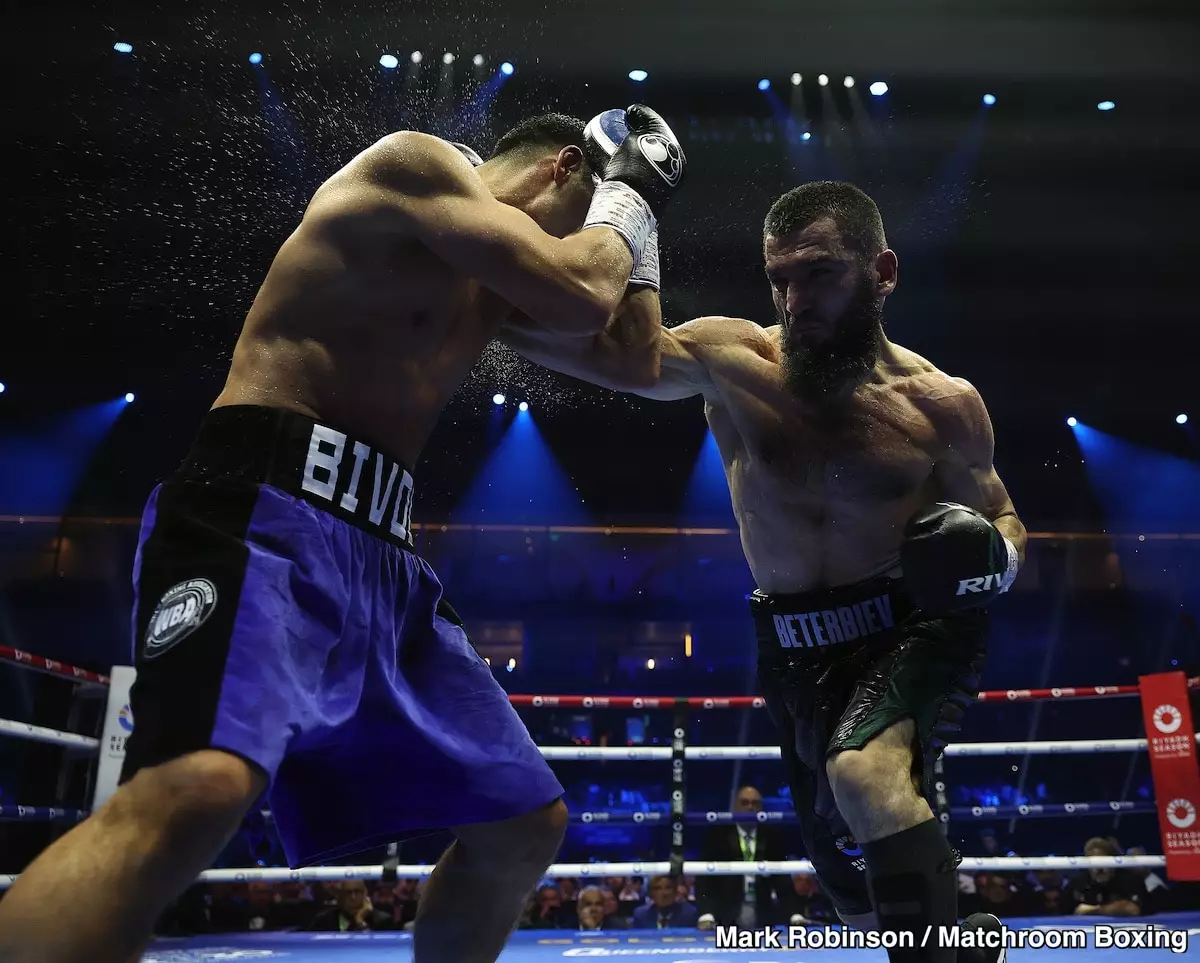In the world of boxing, mental strategy can be just as crucial as physical skill. This notion has garnered a fresh spotlight following Dmitry Bivol’s loss to Artur Beterbiev in a hard-fought battle at the Kingdom Arena last Saturday. As Bivol reflects on his performance, Andre Ward, a former elite boxer, has voiced his concerns regarding Bivol’s recent admission of the effects Beterbiev’s punches had on him during the fight. Here, we dive into the implications of such admissions and how they may shape future encounters.
Bivol’s candid revelation that he felt the impact of Beterbiev’s punches even when blocking them raises questions about the notion of vulnerability in boxing. While it is integral for athletes to honestly assess their performances, openly discussing weaknesses can be seen as a double-edged sword. In a sport so mentally demanding, acknowledging pain or discomfort provides opponents with insight into an athlete’s psychological and physical state. This exchange of information could play a pivotal role in an eventual rematch in 2025, a possibility that Ward believes Bivol should keep under wraps.
By stating that Beterbiev’s punches were indeed landing, Bivol may unintentionally feed into his opponent’s confidence. Beterbiev, who is known for his ferocity and knockout ability, can take solace in knowing that his power is acknowledged as a game-changer. Thus, Bivol’s transparency could lead to an enhanced psychological advantage for Beterbiev in the long run.
In the heat of competition, a fighter’s stamina can be drastically depleted by the relentless pressure exerted by a powerful opponent. During their encounter, as Bivol began to tire in the later rounds, he found himself unable to deliver effective counters or maintain the aggressive pace necessary to secure a victory. Factors contributing to this decline may include the relentless body shots from Beterbiev, an exceptionally fast tempo, and consistent pressure.
Ward’s critique of Bivol extends beyond mere strategic advice; it emphasizes the broader principle of maintaining an air of confidence. Bivol’s admission of slowdowns could prompt analysts and enthusiasts to delve deeper into the reasons behind his fatigue. If the rematch occurs, Bivol must find a way to not only mitigate the damage dealt by Beterbiev but also to conserve his strength for the latter rounds.
Bivol’s fight strategy during the previous bout illustrates the critical balance that must be maintained between aggression and caution. Although he had moments of success in the ring—particularly showcased in the seventh round—the pitfalls of overextending himself ultimately changed the course of the fight. The damage from Beterbiev’s counterpunches became evident, as Bivol appeared to retreat into a more defensive shell following impactful shots.
The assessment by Bivol’s trainer, Stephen Edwards, amplifies the complexities inherent in boxing strategy. While Bivol must consider a more aggressive approach moving forward, he must do so judiciously. A heightened aggressiveness could expose him to more damage, allowing Beterbiev to capitalize on openings. This cyclical nature of offense and defense in boxing highlights why it is often termed a chess match within the squared circle.
As the boxing community anticipates a potential rematch, the question remains: how will Bivol evolve? To be victorious, he must not only come equipped with a refined strategy but also preserve an aspect of unpredictability. By being more aggressive, Bivol can create openings, yet any sign of hesitation could lead to catastrophic consequences against a fighter of Beterbiev’s caliber.
Equally important for Bivol’s preparation is the mental game. Engaging in a narrative highlighting his past adversities could undermine confidence and invite self-doubt. Instead, taking a quiet yet confident approach, evaluating fight footage, and working on stamina and techniques could facilitate a path to success.
The art and science of boxing rests on an amalgamation of skill, strategy, and psychology. Athletes must possess the acumen to navigate these dimensions and ideally, learn from their experiences in order to foster growth. As the boxing landscape eagerly awaits the rematch, Bivol’s journey toward redemption will need to encompass not just adjustments in tactics but a deeper understanding of the nuanced dynamics of fear, recognition, and resilience in the squared circle.

